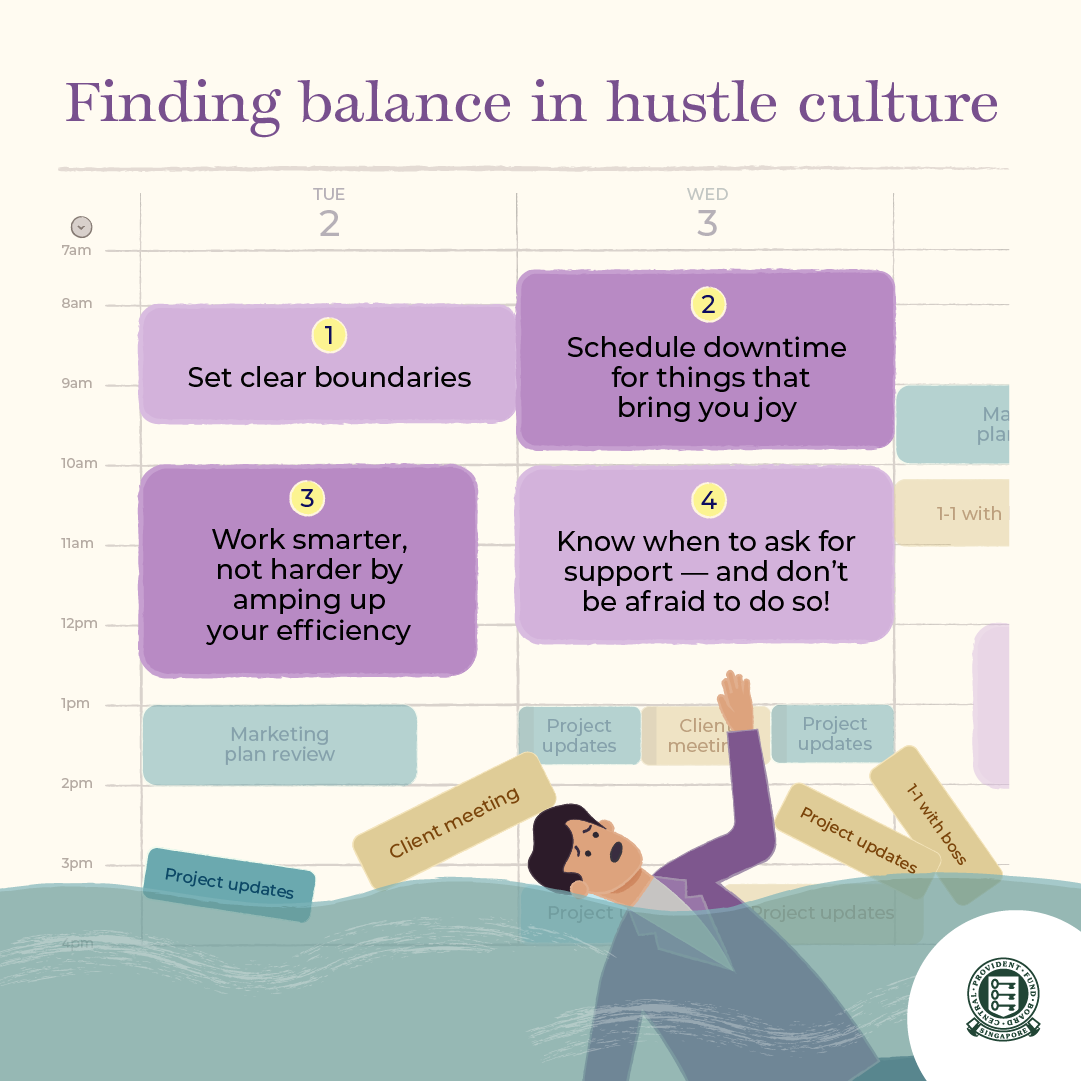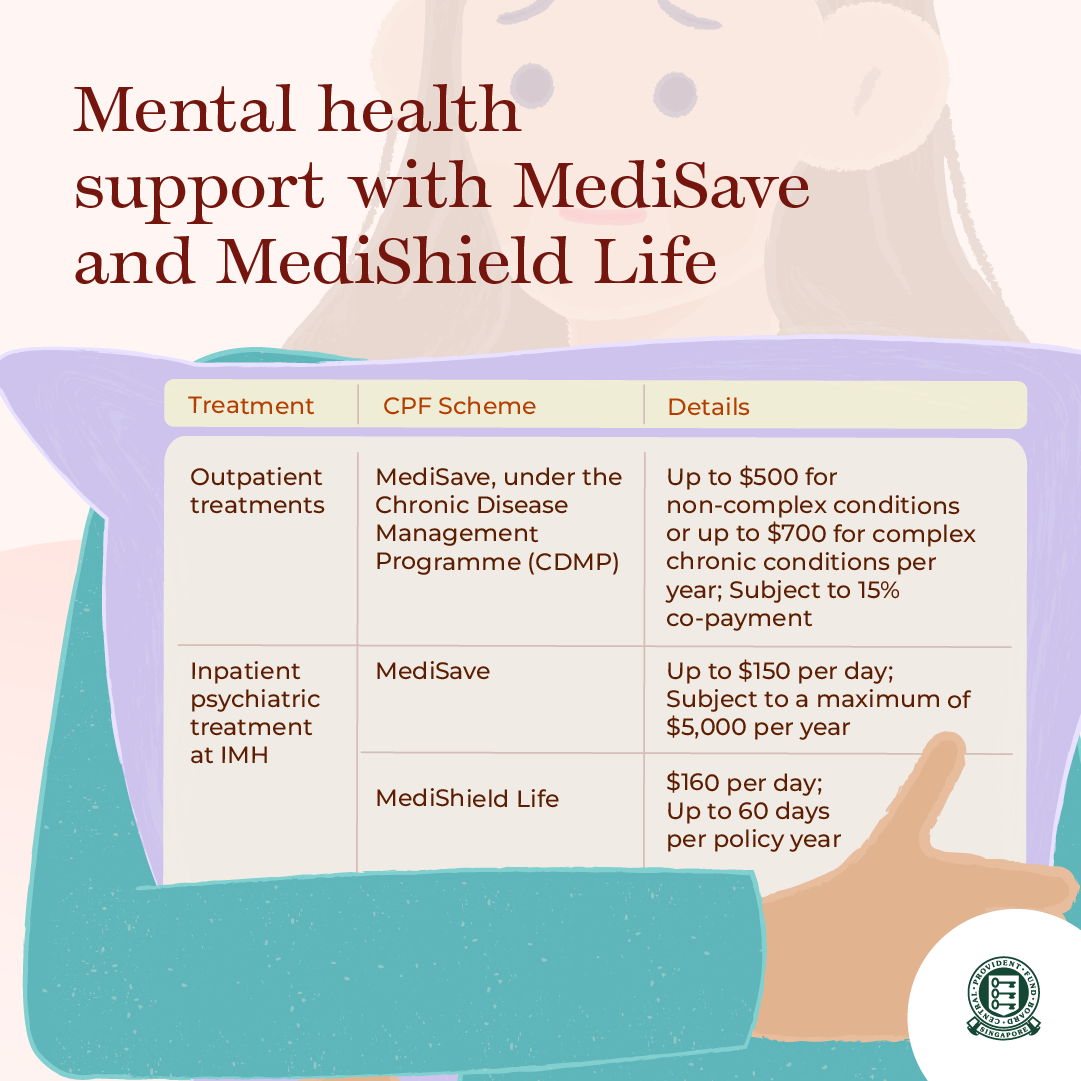19 May 2023
SOURCE: CPF Board

In a fast-paced city, it’s easy to get caught up in the never-ending cycle of work, eat, sleep, repeat.
Despite feeling like you want to take a break, there might be a nagging voice at the back of your mind warning you that you’d fall behind your peers if you do. That’s the hustle culture: where "grinding" and "hustling" is the only way to achieve success, financial stability, and personal fulfilment. However, this may come at the expense of your physical and mental health, personal relationships, and leisure time.
Don’t get us wrong — working hard is undoubtedly important. However, it’s essential to obtain work-life harmony or you may experience burnout. Here are some tips on how you can seek to find minimise it.
1. Set clear boundaries
With hybrid working arrangements becoming the norm, it can be difficult to switch off even when the workday has ended. Aim to turn off your work devices after working hours, especially if there are no urgent tasks. The work will still be there in the morning!
You might also find difficulties in declining requests. In a professional setting, it's important to communicate your needs and priorities with your supervisors and colleagues in an open and truthful manner. You can also offer alternative solutions such as negotiating a more feasible deadline. If you find yourself constantly stuck in meetings that run unnecessarily long, set expectations upfront by saying politely “Just to let you know, I have a hard stop at 10 am.”
This theory also applies to your personal life. There may be times when you feel too exhausted to engage in social activities. In such situations, it's perfectly acceptable to postpone or decline the gathering. Setting boundaries is not selfish — it is an act of self-care that benefits both you and those around you!
2. Schedule downtime for things that bring you joy
Taking rest is crucial for your overall well-being. Approach your hobbies with the same level of commitment as you do for work. When you have enough time to rest, you can rejuvenate your mind and body to tackle any challenge.
Resting doesn't have to be limited to your personal time; you can also take a break at work, when appropriate. These small pauses during the workday can do wonders for your productivity and mental health.
3. Work smarter, not harder by amping up your efficiency
Becoming more productive is easier said than done, but leveraging the tried and proven techniques can help!
For instance, the Pomodoro Technique is a time management method that taps on 25-minute focus periods followed by 5-minute breaks. After every four "Pomodoros" (work intervals), there will be a longer break of 15-30 minutes. The idea is to break work down into manageable, focused intervals, separated by breaks that allow for rest and reflection.
Another method to reduce procrastination is called Eat the Frog, where you start by tackling the most challenging task (the frog) on your to-do list first. This way, you get the ‘hardest’ task out of the way when your energy and focus are at their peak, and the rest of your day feels more manageable.
Depending on your preferences and work style, adopting these methods and finding what works best for you will allow you to become more efficient and have more time to relax.
4. Know when to ask for support — and don’t be afraid to do so!
Seeking support is a courageous act, especially when you feel overwhelmed by your problems. Sharing your thoughts and emotions with others can help alleviate pent-up worries and provide clarity.
Your workplace can also be a valuable source of support, where you can connect with colleagues to exchange tips or discuss challenges. Regular check-ins with your supervisor can also offer guidance and clarity on work expectations.
Feeling stressed and anxious is common, but if it persists and begins to impact your day-to-day, it's crucial to take action. If needed, seek help from mental health professionals. The costs of dealing with a mental health condition from therapy, medication and hospitalisation can be expensive, but you can tap on MediSave and MediShield Life, which covers inpatient psychiatric treatments. MediSave also covers outpatient treatments of mental health conditions such as anxiety, schizophrenia, major depression, and bipolar disorder, under the Chronic Disease Management Programme (CDMP).
Here’s an overview:

Information is accurate as of date of publication.



.jpg)